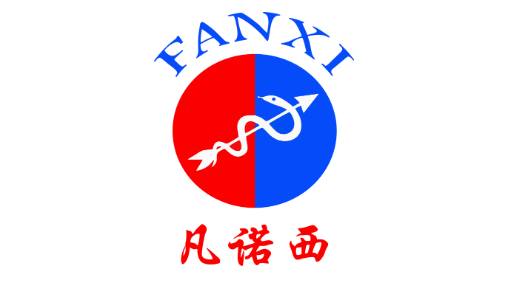On March 20, Huapont Life Sciences Co., Ltd. revealed that, in order to develop new nano- antibody drugs and continue to strengthen predominance in skin related diseases, it plans to jointly invest and establish an innovative drug R&D platform company with Pregene Shenzhen Biotechnology Company (hereinafter referred to as "Pregene"). The new company will be named Huapu (Shenzhen) Pharmaceutical Research and Development Co., Ltd (hereinafter referred to as "Huapu").
Founded in 2015, the partner Pregene is mainly engaged in the R&D of CAR-T cell drugs and nano-antibody drugs. In the field of nano-antibody drugs, Pregene has established a discovery platform, and jointly set up a laboratory of nano-antibody drugs with Chinese Academy of Sciences which has implemented unregistered clinical trials of nano-antibody EGFR CAR-T for solid tumor.
Speaking of the cooperation reason, the head from Huapont Life Sciences Co., Ltd. said the appeal lies in the rich experience in the R&D of nano-antibody CAR-T drugs and the team with rich experience cultivated during the development of nano-antibody drug project that Pregene boasts. On the basis of the deep cooperation between affiliates of Huapont and Pregene earlier, two sides have matching resources and similar strategic plans in the treatment of autoimmune diseases, respiratory diseases and infectious diseases. (Source of Excerpted Contents: Securities Daily)
Bioantibody drug, LY06006 developed by Luye Pharma Group enters phase III of clinical trial
Luye Pharma Group announced on April 8 that its recombinant anti-rankl monoclonal antibody injection LY06006 has launched phase III clinical trial in China. Last week, the company also received clinical approval for another bioantibody drug, LY09004. At present, multiple biological medicines of the company have entered various clinical stages at home and abroad, and the R&D is going well.
LY06006 is the biosimilar drug of PROLIA®, which will be used to treat the osteoporosis for postmenopausal women and the rarefaction of bone caused by glucocorticoid, as well as increase bone mass of the men with osteoporosis, patients with non-metastatic prostate cancer who receive androgen deprivation therapy and breast cancer patients who receive aromatase inhibitor therapy.
is confident about the market prospect of LY06006. PROLIA®, comparable product of LY06006, generated USD 2.29 billion in sales in 2018, with a year-on-year growth rate of 16%. So far, PROLIA® has not entered Chinese market yet. will accelerate the R&D of LY06006, hoping to provide high-quality bio-similar drugs to Chinese patients as soon as possible to meet the urgent clinical needs.
SHANGHAI MIRACOGEN introduces ADC technology with USD 125 million
Recently, SHANGHAI MIRACOGEN signed a licensing agreement with SYNAFFIX B.V., a Netherlands-based company, to develop Antibody Drug Coupling (ADC) for cancer treatment. However, the two sides did not reveal the type of the cancer.

ADC is a new class of therapeutic drugs, which is attracting increasing attention from global pharmaceutical companies. ADC is a powerful anticancer drug that targets cancer cells by coupling monoclonal antibody and TOXIC DRUG through bioactive LINKER. Because it is able to accurately target cancer cells and prevent the normal cells being affected, the drug efficacy is greatly improved and the side effects are reduced. Manufacturing ADC is a complex task, and so far only four classes of ADC have been approved by Food and Drug Administration (FDA).
According to the agreement, MIRACOGEN received the non-exclusive license of GLYCOCONNECT and HYDRASPACE ADC technology, which it will apply to the next clinical candidate drug. SYNAFFIX will receive advance payment and potential milestone payment totaling EUR 110 million (about USD 125 million), and will also receive royalties for future sales of the products developed. MIRACOGEN will take charge of the R&D, production, and commercialization of this ADC product, whilst SYNAFFIX will manufacture the specific parts related to its exclusive GLYCOCONNECT and HYDRASPACE technology.
The licensing agreement is built on the basis of a previous research collaboration between the two sides. In the research, the two focused on a specific drug candidate, and now this drug has been selected for clinical development.
Ascentage Pharma Group International, TopAlliance Biosciences Inc. join hands to explore combination of small molecule drugs and PD-1
As a tumor-agnostic therapy, PD-1 tumor immunology has attracted many pharmaceutical companies in China to make investment to develop various indication drugs. As a star drug, PD-1 is one of the biological drugs of macromolecular antibodies. What will happen when PD-1 meets small molecule drugs?
According to China Business Network, Ascentage Pharma Group International and TopAlliance Biosciences Inc. (01877.HK) reached a strategic cooperation agreement. The two sides will implement clinic trials in domestic market on combination of APG-1387 inhibitor of apoptosis of proteins (IAP) (Ascentage) and PD-1 monoclonal antibody Toripalimab Injection (TopAlliance), so as to treat tumors (solid tumor and blood tumor), especially refractory tumor, drug tolerance tumor and other indications determined by both companies.
Ascentage Pharma Group is an innovative pharmaceutical company, who is mainly engaged in the treatment of tumors, hepatitis b and age-related diseases. APG-1387 under research is a new generation of highly specific inhibitor of IAP, and is a kind of small molecule drugs for the treatment of advanced solid tumors and chronic Hepatitis B Virus (HBV) infection. Toripalimab Injection independently developed by TopAlliance (trade name: Tuoyi; product code: JS001) is the first domestic PD-1 approved by China’s National Drug Administration (CNDA) on December 17, 2018. It is used to treat non-resectable or metastatic melanoma that has failed systemic therapy. Tuoyi went public in February this year.
For this drug combination exploration, Yang Dajun, President of Ascentage, in an interview to China Business Network, said:" As a single drug, APG-1387 has completed phase I clinical trials in China and Australia, initially showing its potential for clinical safety and efficacy. Based on the preclinical studies we have conducted and the combined immune-oncology clinical studies underway in the United States, it is expected that the combination of APG-1387 and Toripalimab will produce good synergies."



Park WeiChart